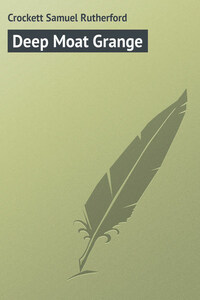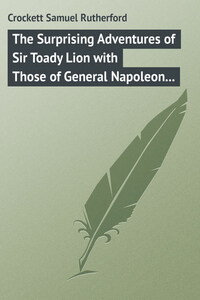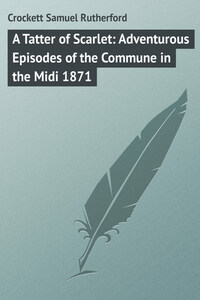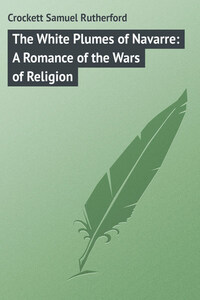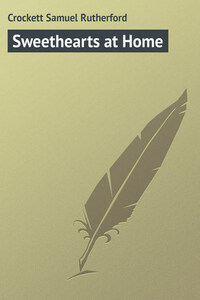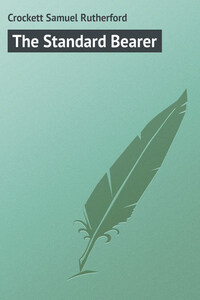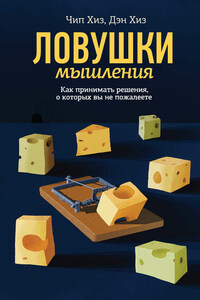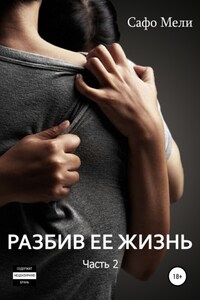CHAPTER I
THE EMPTY MAIL GIG
I was only a young fellow when these things began to happen among us, but I remember very well the morning when it first came out about the Bewick carrier. He was postman, too, but had got permission to keep a horse and cart so that he might make a good little bit by fetching parcels and orders from town. Town to us meant East Dene, and Bewick, to which Harry went, lay away to the east among the woods and hills. It was a lonesome place, Bewick, and, indeed, is still, though now they have got a railway coming within eight miles or so. But the mystery of the Moat Wood happened before there was any talk of railways.
Harry Foster was his name – the carrier's, I mean – and a common one enough in Northumberland. Many a ride have I gotten on his cart, which was a light one on springs – blue body, orange shafts, panelled with red, and the shafts lined red. You could tell the cart anywhere. At least any of the Breckonside boys could, quite a mile away. And if it was too far to see the cart, there was no mistaking Dappled Bess, the carrier's horse, which was bright orange colour with white patches, like the circus pony the clown rides. You've seen that pony. They have one like that in every circus that has ever come to our town, and there's few that pass Breckonside – Seager's, and Lord George's, and Bostock's, the Original and the Real Original, both, and in old days, so my father tells me, Wombwell's itself. Oh, a great place for circuses is Breckonside!
I will tell you about it. Breckonside, where I live, is a good big village about ten miles from the big town of East Dene, where there are docks and a floating landing-stage, and a jail – everything modern and up to date – with railways and electricity cars, and a theatre every night almost, and tramcars that you can hang on behind, and mostly everything that makes a boy happy – that is, for a day.
But still, give me Breckonside for steady. Why, there's only one policeman in Breckonside, and he owes my father for his grocer's bill – oh, ever so much! I shall not tell how much, but he knows that I know. More than that, he always tells his wife what he is going to do, and where he is going to go, and she tells Mrs. Robb, her neighbour over the hedge, and Mrs. Robb tells Mrs. Martin, and Mrs. Martin's Tommy tells me, or else I lick him. So we know. We like our policeman in Breckonside. He can make lovely whistles out of bore-tree, and his name is Codling.
You can see the sea from Breckon Hill, which is wooded to the top, only by climbing up a tree. And away to the north, Scotland way, you can make out the hills called Cheviots, like a long, low, blue cloud.
But about the Bewick carrier, Harry Foster, the thing is just this, and it is a Mystery. I saw the red and blue cart come in – the piebald pony lame, and the splashboard all leaves and blood, but no Harry Foster to be seen anywhere.
It was catechism morning, when the school had to go in half an hour earlier, and the Dissenter folk could keep away their children, if they liked; and that always made Mr. Mustard, our schoolmaster, very mad – hopping, indeed. He did not admire Dissenters anyway, at the best of times, because they had voted against him when he wanted to be parochial officer, or something. And it was just gall and squirm wood (as Elsie said) for him to see Ned Tiger, the Wesleyan minister's son, playing "plunkie" and "ringi" with marbles, when he, Henry Powell Mustard, a good Churchman and parish clerk, had to be teaching catechism to half-empty benches. He would glower and rap with his cane on the desk, and find fault – all the time with an eye on Ned Tiger (his real name was Wheatly) and Ben Overton, who was a Baptist, and Peter McNab and Sandy Auld (who, as you can see by their names, were Presbyterians, and hit anybody who called them Dissenters, being of the Scotch kirk and good fighters).
Mr. Mustard taught us our duty, how to walk humbly in our sphere, and so forth, with a supple cane, and he whipped the girls, too, till I stopped him. But that comes after. He whipped us all that morning, without forgetting one, and at every good shot of Ned Tiger's alley-taw he would scowl worse than ever and discover one more unfortunate to wallop.
Yet he was a good teacher, and made good scholars; kind, too – out of school, that is. But as we only met him in school, and with a black frown running across-ways between his eyes, we declined to believe in his kindness of heart, at any price.
"You are my subjects, great and little, bad or good," he used to preach to us. "In Breckonside school only the king, the head of the Church, is greater than I. Like him, I reward the virtuous, and I punish the naughty!"
We thought within us that virtue must be scarce in Breckonside school. For as yet but few of the rewards had come our way. Of punishments there was never any lack, as our skins well knew.
"Some rascals were in my garden last night," said Mr. Mustard, "to the overturning of my potted geraniums. The size of his boot was a number six, like what are sold at Provost Yarrow's shop. I will flog all the boys with number six boots bought at The Shop, unless the culprit confesses. Show boots."
